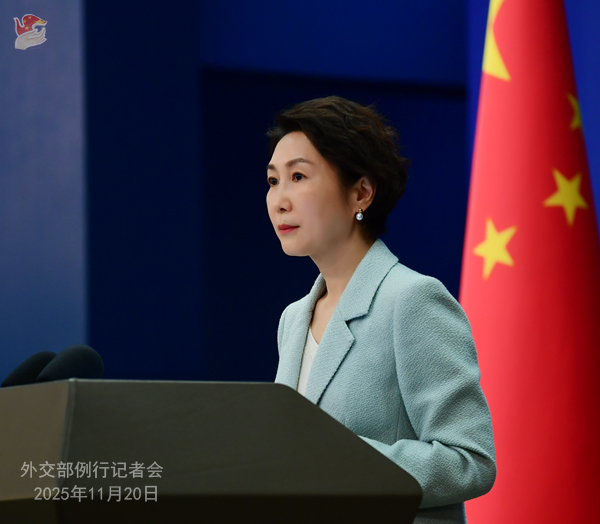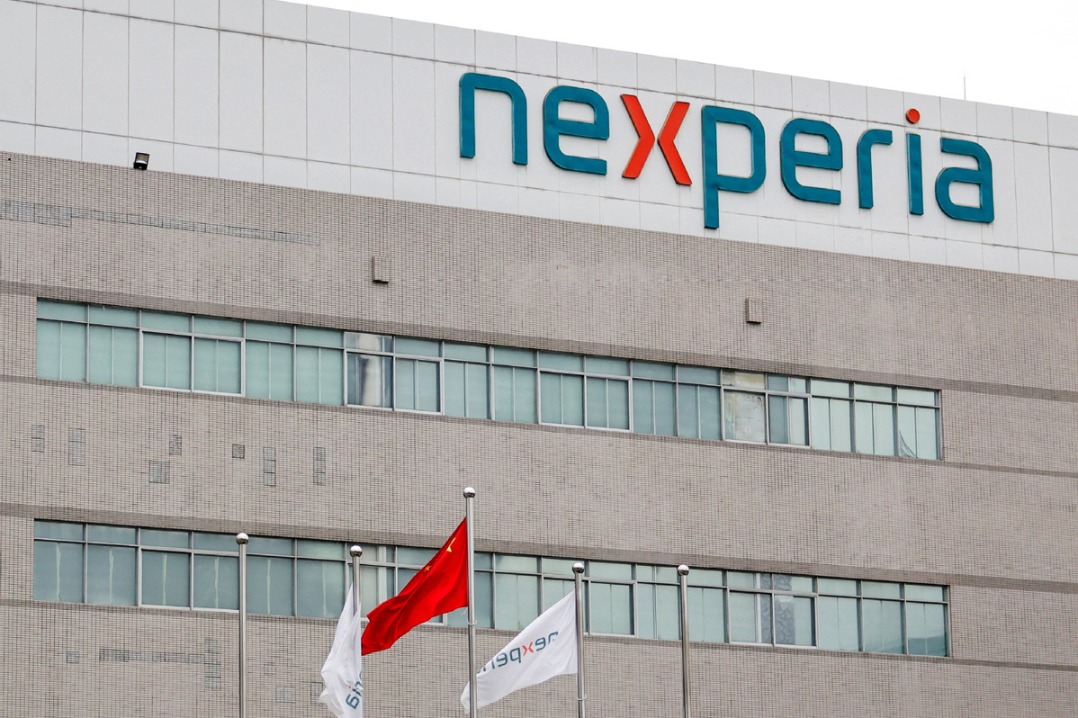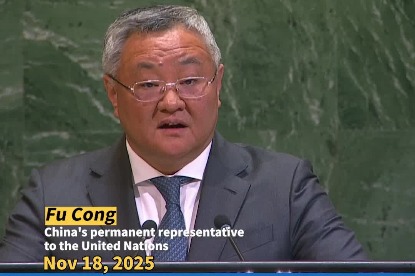Ministry urges Japan to 'maintain self-respect'


Beijing urged Tokyo on Thursday to "maintain some self-respect", as Japan says it is open to contacts and dialogue with China while refusing to withdraw Japanese Prime Minister Sanae Takaichi's provocative remarks on Taiwan.
Earlier this month, Takaichi became the first incumbent Japanese prime minister to publicly suggest in Japan's parliament the country's possible military intervention in Taiwan.
Although the Chinese Foreign Ministry confirmed on Monday that a meeting with Takaichi is not on Premier Li Qiang's agenda when he attends the Group of 20 Summit in Johannesburg, South Africa, this week, the Japanese side has repeatedly said that it is "open" to contacts with China.
The ministry reconfirmed on Thursday that Li will not meet with the Japanese leader during the upcoming G20 Summit.
"Premier Li Qiang has no plans to meet with the Japanese leader. We urge the Japanese side to maintain some self-respect," ministry spokeswoman Mao Ning said in the daily news briefing.
Tokyo's die-hard refusal to retract Takaichi's comments has led to increasing impacts on official engagements involving the two countries and beyond, including the trilateral culture ministers' meeting among China, Japan and the Republic of Korea.
The ROK's Ministry of Culture, Sports and Tourism said on Thursday that the meeting — originally scheduled to be held in the Macao Special Administrative Region on Monday — has been provisionally postponed after China said it would not participate, media in the ROK reported.
Mao said that the Japanese leader's "blatant, erroneous remarks on Taiwan have hurt the feelings of the Chinese people (and) challenged the postwar international order".
The remarks also "sabotaged the foundation and atmosphere for China-Japan-ROK trilateral cooperation, making the conditions for holding relevant trilateral meetings temporarily unavailable", she said.
Wang Peng, a research fellow at Huazhong University of Science and Technology's Institute of State Governance, said, "Tokyo's obsession with not correcting its mistake is actually a kind of speculation or gambling, and is doomed to fail at last.
"China will never allow any actions to damage its core interests, and Japan has no other option but to correct the mistake by withdrawing the remarks," Wang added.
Several high-ranking Japanese officials, when defending Tokyo's refusal to retract Takaichi's remarks in parliament, have recently claimed that the remarks "did not change the Japanese government's established position".
Wang said, "Such claims are pure sophistry and are in fact aimed at condoning Japanese politicians' challenging the one-China principle."
Mao, the Foreign Ministry spokeswoman, also rejected such claims on Thursday by saying, "I'm not sure what exactly Japan meant by 'the Japanese government's existing position'."
She said that on the Taiwan question, the Japanese government's position should have been to honor the one-China principle and abide by the spirit of the four China-Japan political documents, "instead of being deliberately ambiguous, and still less turning back the wheel of history".
If the Japanese government's position on the Taiwan question has not changed, then the Japanese leader should not link Japan's "survival-threatening situation" to the Taiwan question, Mao added.
"Tokyo verbally claims that its position has not changed, but its actions are crossing the line step by step," she said. "The Japanese side should take China's solemn demands seriously, retract the erroneous remarks, and earnestly translate its commitments to China into concrete actions."
"Japan should remember that Taiwan is China's Taiwan. Whether there is a contingency in Taiwan or not is none of Japan's business," she said. "Trying to create trouble using Taiwan will only invite trouble for Japan itself."
zhangyunbi@chinadaily.com.cn
































